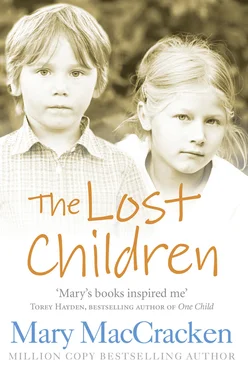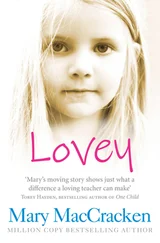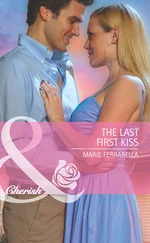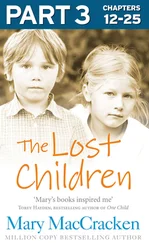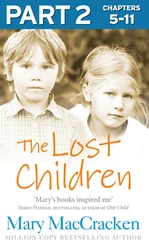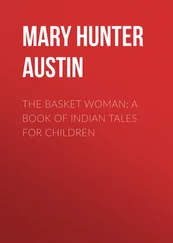Cover
Title Page
Dedication
Epigraph
Chapter 1
Chapter 2
Chapter 3
Chapter 4
Chapter 5
Chapter 6
Chapter 7
Chapter 8
Chapter 9
Chapter 10
Chapter 11
Chapter 12
Chapter 13
Chapter 14
Chapter 15
Chapter 16
Chapter 17
Chapter 18
Chapter 19
Chapter 20
Chapter 21
Chapter 22
Chapter 23
Chapter 24
Chapter 25
Teacher
Also by Mary MacCraken
Coming soon …
Exclusive sample chapter
Copyright
About the Publisher
For my mother and first teacher:
Florence Ferguson Burnham
He drew a circle that shut me out –
Heretic, rebel, a thing to flout.
But Love and I had the wit to win:
We drew a circle that took him in!
– Edwin Markham
I encountered the school without warning, sandwiching the appointment between one at the Young Women’s Christian Association (YWCA) and another at the Cerebral Palsy Clinic, where I had been many times before. It was to be a routine visit; my tennis racket was packed in the back seat of the car in case we finished early enough for a set before our children arrived home from school.
And now, nothing can erase that room, that school. In the slide file of my mind it has a perfect print: each line and shadow as clear now as it was on that first morning. Sunlight slanted across the blue-painted floor surrounding the woman at the piano dressed in a flowered blouse, rose and green, and a green cotton skirt. Small chairs were placed in a semicircle around the piano, and in them sat perhaps twenty children and six or seven adults. The adults, particularly the man, had their knees bunched up to their chins, and yet they seemed comfortable, smiling, calling back and forth across the room to each other.
But there was something strange about the children. It was not their bodies; no one was deformed. In fact, most were beautifully made. There was a translucent quality in their faces, but there was also something more, or perhaps less: a stillness in their expression. These children did not call to each other or playfully poke or tease; instead they sat silently, turned inward.
Suddenly the room became filled with noise and motion. Chairs were shoved to the edge of the room while the Director thumped loudly on the piano. The children galloped in pairs around and around until suddenly one tiny girl broke away and flung herself to the floor, screaming high-pitched, indecipherable screams. Her small legs, clad in red tights, were rigid, spread-eagled against the blue floor. She pulled her plaid skirt over her head and beneath it screamed:
“Vacuum cleaner. Look! Aaaaahhh. Aaaahhhh. Get it! Oooohhh. Aaaaahhhh. Get it! Here it comes! Aaaa. Aaaa.” She sat up, pointing toward the door. Her terror was real: I felt it inside me, and I turned towards the door, expecting to see a monster vacuum cleaner rolling in, motor running, upright, unstoppable, sucking us all into its giant bag.
But there was nothing, and gradually the terror in the room dissolved. The piano quietened and moved to the smoother rhythm of a waltz, and the children changed from galloping to a skating motion, pushing their feet across the blue floor. No one had stopped to look at the small girl in the middle of the floor or for the vacuum cleaner: they skated on, stepping over her arm or leg if they were jostled and pushed too close to her.
Only her teacher knelt beside her, talking softly, touching her shoulder, her hair. Then gathering her up, she held the child against her own body until the terror dissolved, was gone. As surely as I had seen the vacuum cleaner, I felt the loving that had displaced the terror. In that instant, that clear, bright second, with no warning, I knew that I would one day work in this school. I felt I had been here before, some other time or else some other place; it was familiar. I was at home.
They stayed like that, the child standing, the woman kneeling with her arms about the child for perhaps a minute more; then the little girl’s enormous eyes left the door and she put her hand against the teacher’s head. They rose then and, hand in hand, rejoined the circle of skaters.
The woman beside me touched my arm. “My God, Mary, I can’t take much more of this. Let’s get out of here.”
I turned to look at her, my friend Ellen, here with me on the assignment from the Junior League to investigate the school for seriously emotionally disturbed children, to visit and see if it would have good placement jobs for our volunteers; and she seemed suddenly far away. I had known her since I was a child, I had been with her when she bought the tweed skirt and blue cashmere sweater that she was wearing; and yet when she spoke to me it was as if her words were coming from a distant country. How could we leave? It seemed to me that we were on the brink of an enormous secret.
Then as my thoughts returned to her, I saw that she had been moved, but not to wonder. Revulsion showed in her face, and I did not know how to tell her about the excitement that I felt.
I followed her away from the room, out onto the porch of the big old white-frame building that housed the school. She said again:
“Mary, this place is terrible. They’re crazy. Those children are crazy. Mad. Just little kids and they’re completely gone. No one in the League could work here. Think what it would be like to go home to your children after this. Come on, let’s go. We’ll have lunch and then we’ll go to the C. P. Clinic and still have time to get in some tennis before the kids get home.”
Crazy. Were they? And what does “crazy” mean? Did she think perhaps that it was catching – that we might take it home to our children, like measles or a bad cold? What was it? What caused it?
“You go,” I said. “I’ll just be a few minutes, talk to the Director, get some pamphlets and a little information, and then I’ll meet you for lunch, okay?”
Ellen looked at me curiously. “You’re going back in there? What for? There’s no point.” Then perhaps recognizing some stubbornness in me reminiscent of our childhood, she sighed. “Oh all right. You’re a good, responsible placement chairman. Where do you want to eat?”
Ah, good. She was going. “Doesn’t matter. Anywhere. You choose.”
“Well, I did want to pick up a wedding present for Betsy at Jensen’s. Suppose I do that – then I’ll meet you at Lord and Taylor’s and we can eat there.”
“Great,” I said. “I’ll see you in an hour.”
I stood on the steps of the school watching Ellen pull out of the driveway, excited, but knowing that there was still time to change my mind. Instead of going back inside, I, too, could leave. I could get into my car, raise the white convertible top, and drive my way back to my safe, suburban life. I could surprise Ellen at Jensen’s, and while she shopped I could linger, drinking in the lovely things, touching a silver bowl, running my finger along the edge of a crystal vase when the salesman turned away, comfortable in a familiar world.
And what if I went back inside? What then? What kind of world lay there, just a few feet away? If I opened the door what would I find – what would I learn?
I lingered a moment more on the steps – then I turned and went back inside the school.
The Director’s office was in the basement, past the lunchroom. There was a musty smell; and though the walls had been painted yellow to compensate for the lack of windows, there was a distinct greenish cast to both the walls and the air. I stood in the doorway of the office; the Director, Mrs. Fleming, was on the phone and I waited hesitantly in the doorway until she finished.
Читать дальше
